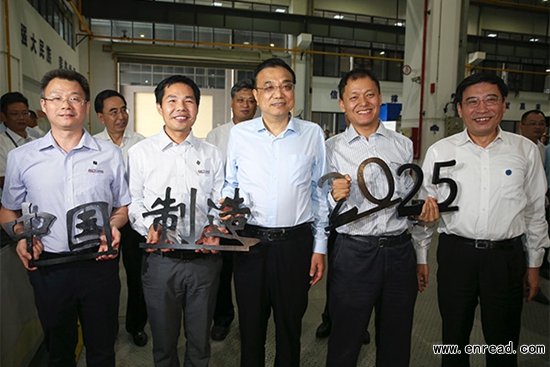| ||||||||||||||||||||||||||||||||||||||||||||||||||||||||||||||||
|
In 2012, Germany launched the concept of "Industry 4.0" in its manufacturing sector1. Three years later, a similar Chinese initiative, or the "Made in China 2025," debuted2.
2012年德国在制造业发起了“工业4.0”的概念。三年后,中国提出一个类似的计划“中国制造2025”。

Both countries are among the world's leading manufacturing powerhouses.
INDUSTRY 4.0 & MADE IN CHINA 2025
The heart of the "Industry 4.0" idea is intelligent manufacturing. In the German context, it means using the Internet to connect small and medium-sized companies in a more efficient way in global production and innovation networks.
"Made in China 2025" is the first ten-year action plan designed to transform China from a manufacturing giant that relies on low-cost labor3 into a world manufacturing power. The plan is designed to increase national competitiveness and stimulate4 innovation rather than simply supporting a single industry.
During German Chancellor5 Angela Merkel's visit to China in 2015, the two sides pledged to bolster6 the connection between "Made in China 2025" and the German "Industry 4.0" strategy to promote entrepreneurship and innovation.
LINKING MANUFACTURERS
Cooperation in high end manufacturing and service industries are listed as the major focuses for future development.
In the Sino-German Industrial Services Zone in South China's Foshan city, many German businesses, including international trade fair organizer Hannover Messe, environmental company Remondis, as well as leading robot maker7 Kuka Robotics, have all settled into the new base.
点击  收听单词发音 收听单词发音
|
||||||||||||||||||||||||||||||||||||||||||||||||||||||||||||||||
上一篇:中国智能手机在印度广受欢迎 下一篇:国际贸易排行榜中国居首 |
||||||||||||||||||||||||||||||||||||||||||||||||||||||||||||||||
- 发表评论
-
- 最新评论 进入详细评论页>>



